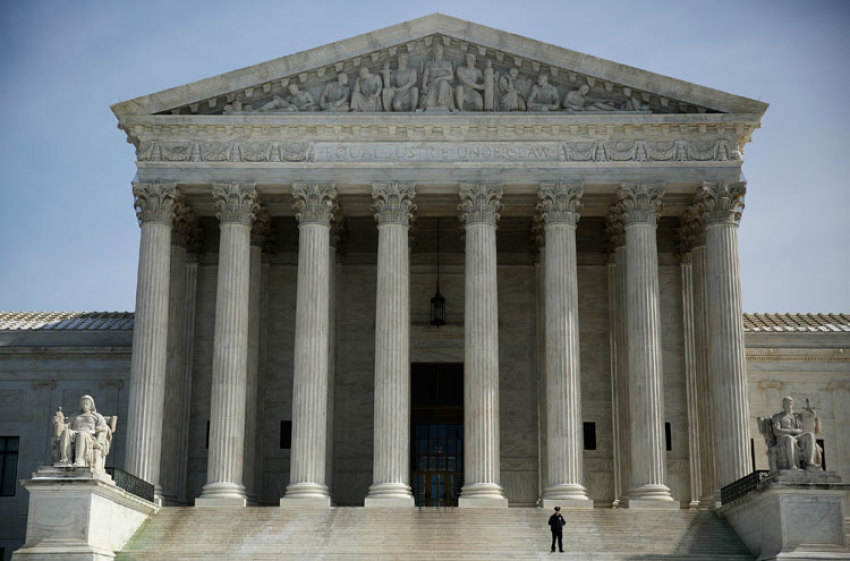Supreme Court Declines to Hear Gay Marriage Cases, for Now; Decision Undermines Rule of Law, Critics Warn

The U.S. Supreme Court declined Monday to hear appeals from five states of appellate court rulings striking down state marriage laws.
The decision to not hear the cases, for now, means that Virginia, Wisconsin and Utah will begin recognizing marriages of two people of the same gender. Since the appeals courts for those states cover other states, the decision could mean that an additional six states may be required to recognize same-sex marriages, even if the voters or elected bodies of those states chose to define civil marriage as only the union of one man and one woman.
The Court was petitioned by both traditional marriage supporters and same-sex marriage supporters to hear the cases.
The Court could be waiting for a split decision at the appellate level before hearing the cases. So far at the appellate level, the courts have only struck down state marriage laws. There are several cases pending at other appeals courts, however. If one of those courts upholds a state marriage law, the Court will be more likely to hear the cases. The Court has until January, if it is going to take up gay marriage this term.
Ryan Anderson, William E. Simon Fellow at The Heritage Foundation, a conservative think tank, criticized the Court's decision as leaving in place poor court decisions that trampled upon democratic processes, or government of the governed.
"This is an unfortunate setback for sound constitutional self-government and a setback for a healthy marriage culture," he wrote.
Same-sex marriage supporters and traditional marriage supporters both have reasonable arguments, Anderson continued, so the decision on how to define marriage for the purposes of state law should be made through democratic processes, not forced upon states by judges.
"In a system of limited constitutional self-government, the people and their elected representatives should be making decisions about marriage policy. And there are reasonable arguments on both sides of this debate. Judges should not insert their own policy preferences about marriage and declare them to be required by the Constitution," he wrote.
Tony Perkins, president of the Family Research Council, a social conservative advocacy organization, also warned that the decision undermines democracy and the rule of law.
"Even more alarming," he said, "lower court judges are undermining our form of government and the rights and freedoms of citizens to govern themselves. This judicially led effort to force same sex 'marriage' on people will have negative consequences for our Republic, not only as it relates to natural marriage but also undermining the rule of and respect for law."
Same-sex marriage supporters celebrated the Court's decision.
"This is a huge step forward for Utah and the entire country," Shannon Minter, legal director for the National Center for Lesbian Rights, said. "We are hopeful that the other cases pending across the country will also vindicate the freedom to marry so that all couples, no matter where they travel or live, will be treated as equal citizens and have the same basic security and protections for their families that other Americans enjoy."
Russell Moore, president of the Southern Baptist Convention's Ethics & Religious Liberty Commission, encouraged Christians to neither respond to the decision with a "siege mentality" nor by jettisoning a Christian sexual ethic.
"The sexual revolution didn't start at Woodstock. It is always with us," he said. So Christians should view the same-sex marriage debate as an opportunity to speak to the broader culture about "a Christian vision of what marriage should be" and to "embody that vision in our churches."
"Let's love our gay and lesbian neighbors," he added. "Let's move forward with persuasion and with confidence. This is no time for retreat or for resentment. This is a time for mission."



























